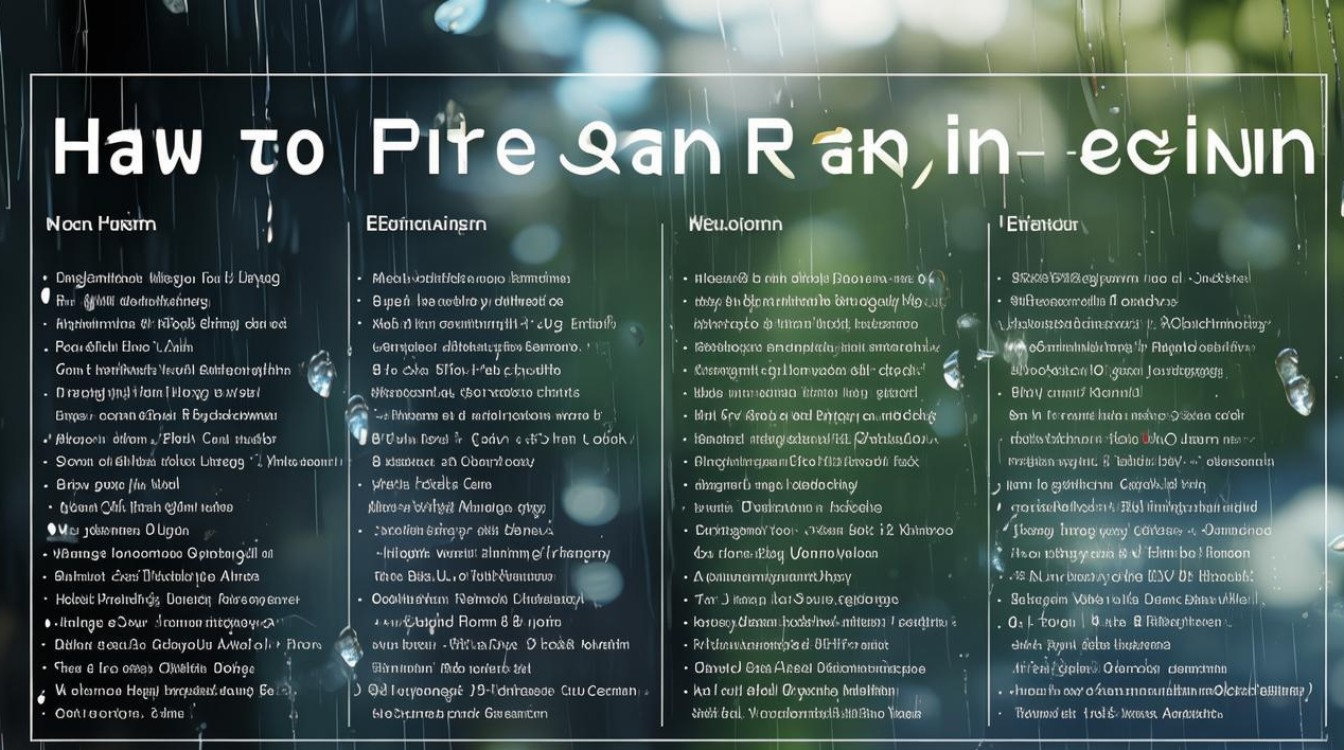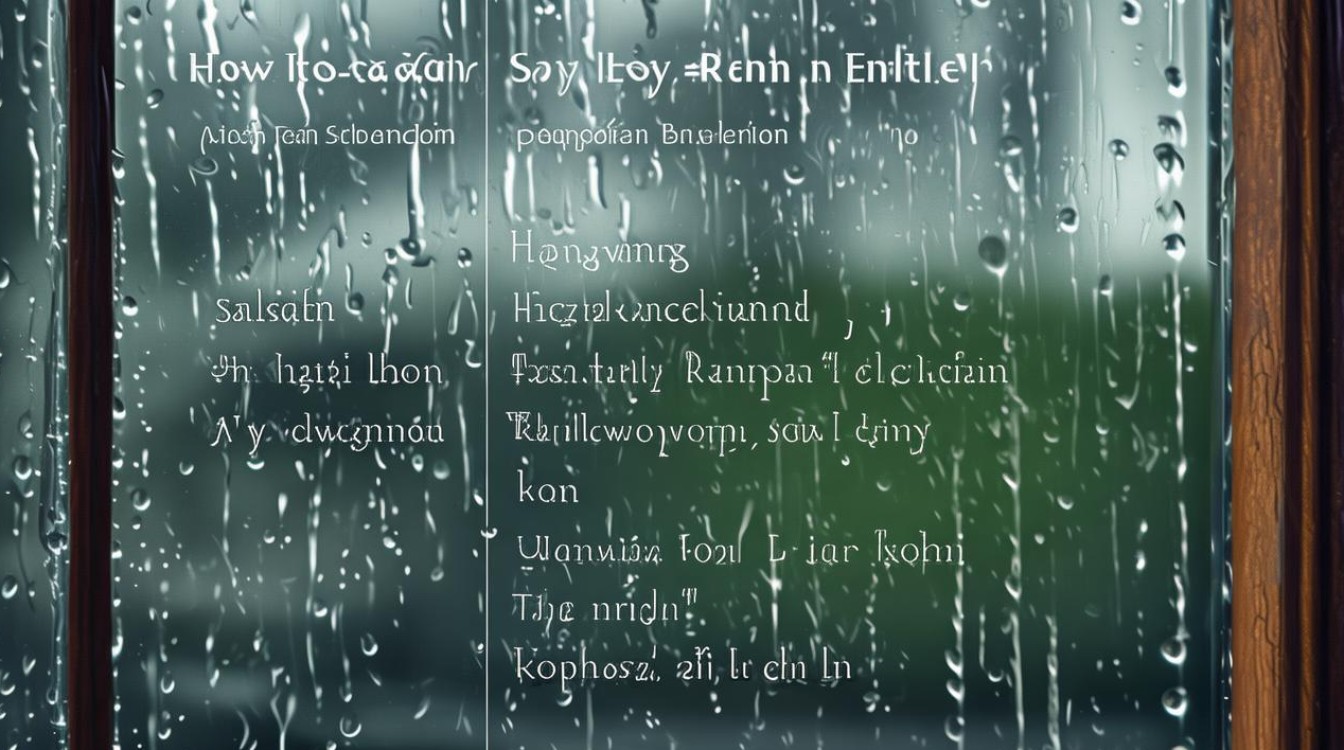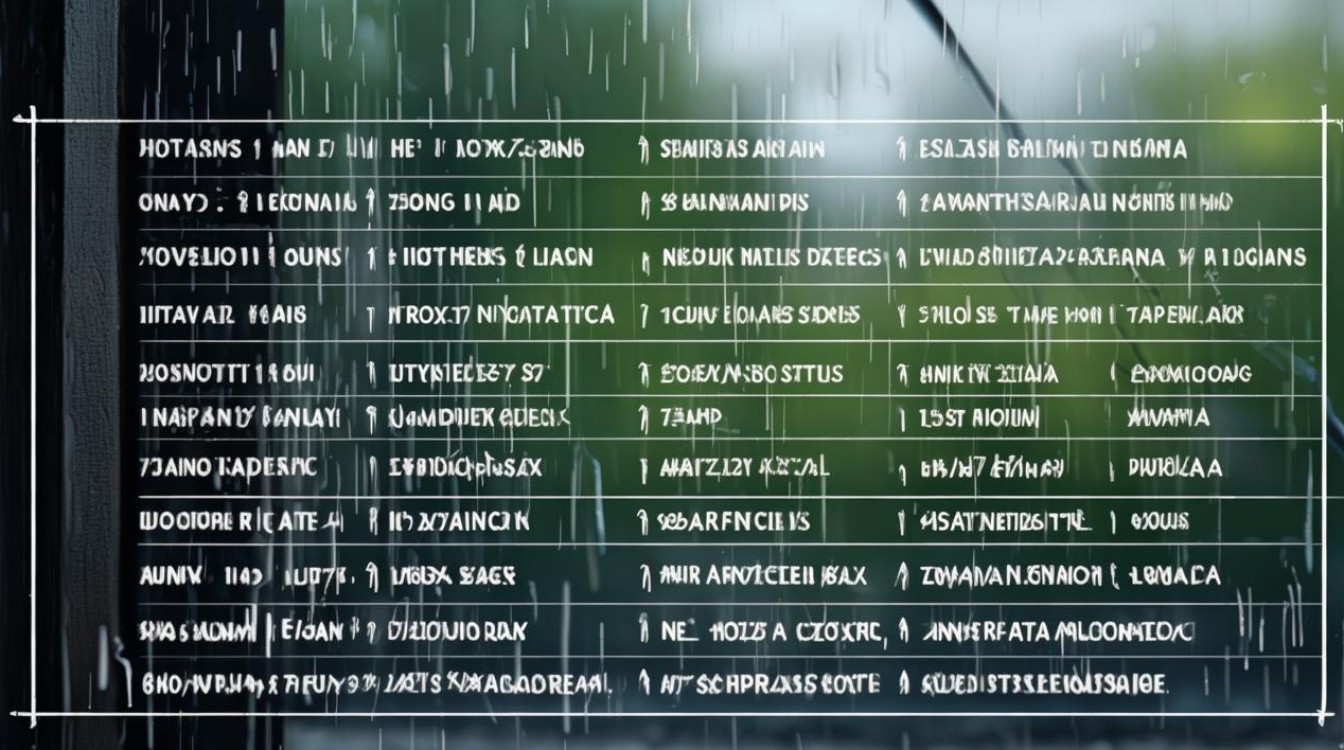Rain is a natural phenomenon that occurs worldwide, and knowing how to express it in English is useful for learners and travelers alike. The English word for "rain" is simply "rain" (pronounced /reɪn/). However, the English language offers a rich vocabulary to describe different types of rain, weather conditions, and related expressions.

Basic Vocabulary: Rain and Its Forms
-
Rain – The general term for water falling from the clouds.
- Example: It started to rain heavily in the afternoon.
-
Drizzle – Light rain with very small droplets.
- Example: The morning drizzle made the streets slightly wet.
-
Shower – Short periods of rain, often intermittent.
- Example: We had a quick shower, but the sun came out soon after.
-
Downpour – Heavy, intense rain.

- Example: A sudden downpour forced everyone to run for cover.
-
Torrential rain – Extremely heavy and continuous rain, often causing floods.
- Example: The storm brought torrential rain that lasted for hours.
-
Sprinkle – Very light rain, barely noticeable.
- Example: There was just a sprinkle, so we didn’t need umbrellas.
Rain-Related Weather Terms
Beyond just the word "rain," English has many terms to describe rainy weather:
- Overcast – When the sky is completely covered with clouds.
- Humid – High moisture in the air, often before or after rain.
- Misty – Light fog combined with fine rain.
- Thunderstorm – Rain accompanied by thunder and lightning.
- Monsoon – A seasonal heavy rain period in tropical regions.
Common English Phrases About Rain
English speakers use various idioms and expressions related to rain:

- "It’s raining cats and dogs" – Means it’s raining very heavily.
- "Save it for a rainy day" – To save money or resources for future needs.
- "Come rain or shine" – No matter what happens, something will proceed as planned.
- "Take a rain check" – To postpone an invitation or plan.
Why Learning Weather Vocabulary Matters
Weather is a common topic in daily conversation. Whether traveling, watching forecasts, or simply making small talk, knowing how to describe rain and related conditions helps in clear communication.
For non-native speakers, practicing these words in sentences improves fluency. For example:
- "The forecast says there will be scattered showers tomorrow."
- "I love the sound of rain on the roof at night."
Cultural Significance of Rain
Rain holds different meanings across cultures. In literature and poetry, it often symbolizes renewal, sadness, or cleansing. In some regions, rain is vital for agriculture, while in others, excessive rain causes problems like flooding.
Understanding these nuances helps in appreciating how language reflects real-world experiences.

Final Thoughts
Mastering the word "rain" and its variations enhances English communication. Whether describing a light drizzle or a fierce thunderstorm, having the right vocabulary makes conversations more precise and engaging.
For anyone learning English, observing weather reports, listening to native speakers, and practicing these terms will build confidence in using them naturally.
Rain is more than just weather—it’s a part of daily life, culture, and language. By expanding vocabulary, learners can express themselves more vividly and connect better with English speakers worldwide.

